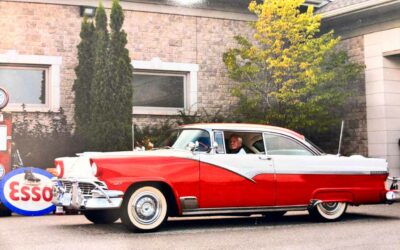Primer
Home Insurance and Auto Insurance is something most people will purchase at some time. Often considered a significant part of someone’s budget and financial plan, it’s something many people are familiar with. Although it’s not unusual for customers to consider cost as one of, if not the most important considerations when making a decision to purchase an insurance policy, as brokers we like to educate customers about how insurance policies provide coverage and what to expect should a loss occur and how to engage the services of their insurance provider.
I find that when talking to customers, even ones who have bought policies for many years might be surprised by the way insurance companies determine things like the cost of an individual policy or establishing protocols for claims handling. To understand why insurance companies work the way they do, it’s interesting to learn about the history of insurance.
A brief history on general insurance
Insurance has actually existed for thousands of years, nearly as long as monetary society has existed. The practice of securing investments and protecting finances through insurance has gone through an evolution over time, but it has always helped people to avoid financial devastation due to unforeseen circumstances.
Ancient Insurance Policies
Among the earliest known insurance systems appears in what is known as the Code of Hammurabi around 1750BC. This system helped merchants sailing the products across the Mediterranean; lenders would accept an extra fee on debts in return for the promise that the debt would be cancelled should the shipment be lost at sea. A similar system existed in Athens for maritime loans. It was used by the ancient Greeks and provided that a ship not returning to port is absolved of any debt on the ship itself or on its cargo. The code contained protections for travelling agents who sought markets for trade of goods that extended beyond the limits of their empire, so the agent was not responsible for loss by robbery or extortion on his travels.
Some interesting examples of items listed in the code of Hammurabi
24. If persons are stolen, then shall the community and… pay one mina of silver to their relatives.
48. If anyone owe a debt for a loan, and a storm prostrates the grain, or the harvest fail, or the grain does not grow for lack of water in that year he need not give his creditor any grain, he washes his debt-tablet in water and pays no rent for this year.
125. If any one place his property with another for safe keeping, and there, either through thieves or robbers, his property and the property of the other man be lost, the owner of the house, through whose neglect the loss took place, shall compensate the owner for all that was given to him in charge. But the owner of the house shall try to follow up and recover his property, and take it away from the thief.
126. If any one who has not lost his goods state that they have been lost, and make false claims: if he claim his goods and amount of injury before God, even though he has not lost them, he shall be fully compensated for all his loss claimed. (I.e., the oath is all that is needed.)
229. If a builder build a house for some one, and does not construct it properly, and the house which he built fall in and kill its owner, then that builder shall be put to death.
800 BC – Rhodian Law
A thousand years later, the inhabitants of Rhodes invented the concept of the general average. Merchants whose goods were being shipped together would pay a proportionally divided premium which would be used to reimburse any merchant whose goods were jettisoned during storm or sinkage.
1063 – Amalfi Sea Code – Italy
In 1063, merchants in the trading port of Amalfi introduced what became known as the Amalfi Sea Code. Under the Code any merchant whose ship was lost was reimbursed from a pool of money all members contributed to. The Code held sway throughout the Mediterranean for over 500 years.
The Development of Modern Insurance
The first insurances policies, as we understand them today, appeared in Genoa in 1347. The most important aspect of these policies was the separation of the fee paid for insurance from any other contract, such as one for a loan.
1565 – Royal Exchange founded
The method of procuring insurance in England was to go to a place where merchants gathered together to transact their business (for example the Royal Exchange) and obtain the services of a broker, who would approach wealthy clients to take a share of the risk in exchange for a premium
Until the middle of the seventeenth century the bulk of Insurance effected was for marine or transit risks. It was not until after the Fire of London in 1666 that the need for Fire Insurance was brought home to the citizens of London. The Great Fire of London in 1666 introduced the beginnings of the loss adjusting profession. It is believed, with the introduction afterwards of fire insurance on buildings, independent surveyors and builders were soon relied on for their expertise in settling claims.
In the late 1680s, Mr. Edward Lloyd opened a coffee house which became a popular meeting place for ship owners, merchants, and ships captains, and thereby a reliable source of the latest shipping news. It became the meeting place for parties wishing to insure cargoes and ships, and those willing to underwrite such ventures. This was the beginning of Lloyd’s of London. Lloyd’s became a center for insurance underwriting aimed at merchants sailing with shipments of goods around 1688.
The next forty years saw the formation of a number of other companies, most of which conducted their Fire Insurance activities in the City and Suburbs of London. When fire insurance first appeared in Britain, mutual societies, in which each policyholder owned a share of the risk, predominated.
By the late 1700’s the appointment in legal terms was that of “General” Agent, the appointee having authority to act for his principals in all matters of Insurance. For all these activities it was generally accepted that the agent received 10% of Fire premiums and duty. The agent was granted the sole representation of the Office in his area and in return was not allowed to hold any other insurance agency.
Insurance in North America
The earliest American fire insurers were mutual societies. American mutuals were not considered money-making ventures, but rather were outgrowths of volunteer firefighting organizations. In 1735 Charles Town (modern-day Charleston), South Carolina residents formed the first American mutual insurance company, the Friendly Society of Mutual Insuring of Homes against Fire. It only lasted until 1741, when a major fire put it out of business.
Did you know?
Benjamin Franklin founded America’s oldest insurance company in 1752.
Called The Philadelphia Contributionship for the Insurance of Houses from Loss by Fire. The company not only sold fire insurance policies but was the first to make contributions toward fire prevention. His company would warn against certain fire hazards and it refused to insure certain buildings where the risk of fire was too great, such as all wooden houses.
Canada also saw a founding father as a father of the insurance industry. Sir John A. MacDonald, Canada’s first Prime Minister, was President of The Dominion of Canada General Insurance Company, doing business since 1887. The Dominion, was the first entirely Canadian insurance company offering policies to Canadians. It was predated, however, by Economical Insurance Company, which began doing business in Canada in 1871.
The history of Auto Insurance
Ohio City, Ohio claims the first accident involving a gasoline-powered auto, a little closer to what most of us think of as a car today. In 1891, engineer James Lambert was driving one of his inventions, an early gasoline-powered buggy, when he hit a tree root sticking out of the ground. Lambert lost control of the vehicle, swerved and crashed into a hitching post. Both lambert and passenger James Swoveland suffered minor injuries. I guess they had no insurance.
The first recorded pedestrian fatalities by car came a few years later. In 1896, Bridget Driscoll stepped off of a London curb and was struck and killed by a gas-powered Anglo-French model car driven by Arthur Edsall. While the car had a top speed of four miles per hour, neither Edsall nor Driscoll—who witnesses described as “bewildered” by the sight of the vehicle and frozen in place—were able to avoid the collision. Edsall was arrested, but the death was ruled an accident and he was not prosecuted. The coroner who examined Driscoll’s body is famously quoted as saying that he hoped “such a thing would never happen again.”
Since the car is a more modern invention, its history has more modern roots as well. Based on some of the same principles of risk established long before.
Did you know?
According to the U.S. Census Bureau, the first auto policy was sold in 1898 by Traveler’s Insurance Co. to Dr. Truman Martin of Buffalo, N.Y.
Auto insurance began as mainly a liability policy, and eventually grew to be the comprehensive coverage we know today. Fire and theft coverage first appeared in 1902, and by 1912 policies similar to those we use today were being formed.
A compulsory car insurance scheme was first introduced in the United Kingdom with the Road Traffic Act 1930. This ensured that all vehicle owners and drivers had to be insured for their liability for injury or death to third parties whilst their vehicle was being used on a public road.
Basic auto insurance is mandatory throughout Canada with each province’s government determining which benefits are included as minimum required auto insurance coverage and which benefits are options available for those seeking additional coverage.
Thanks to a competitive insurance market, products have continued to grow and change, with new features that fit the modern world being developed every day. Yet insurance continues to do what it has since its earliest inception – protect us from the unexpected.







